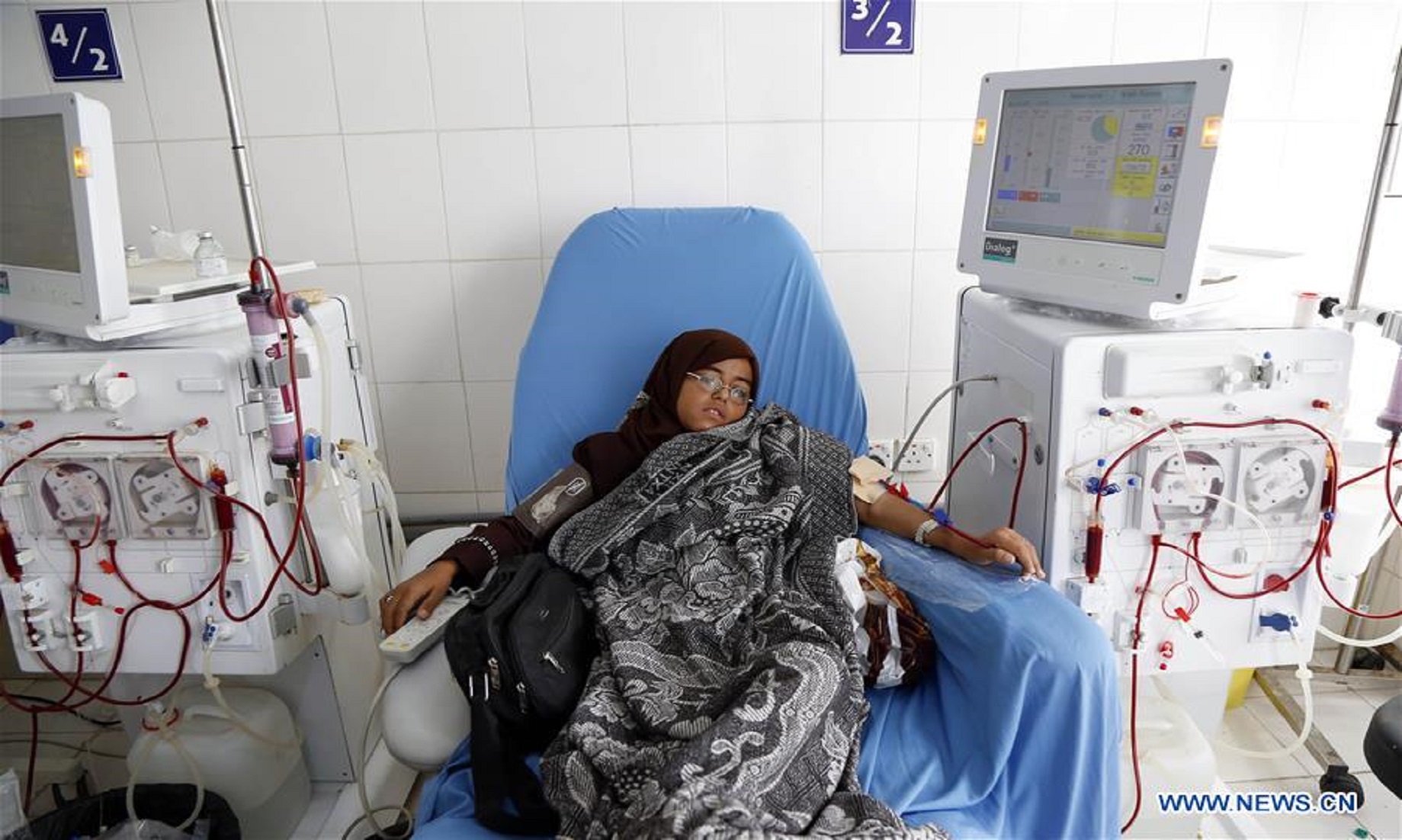YEMEN, Mar 26 (NNN-XINHUA) – Mukhtar Saif, a Yemeni patient, who suffers from kidney failure, is fortunate to receive dialysis treatment at Al-Jumhori public hospital in Saada city, in north Yemen.
However, the pains and sufferings remain beyond description for Saif, and many other renal patients, because of a lack of medicines and economic support.
“Fear from airstrikes caused me kidney failure,” Saif told Xinhua.
“I suffer from kidney failure and a lot of other things, such as, transportation expenses (to the hospital) … my condition is very tiring,” said the 29-year-old patient, adding that, he has not enough money to buy life-saving medicine.
Grinding into its sixth year, Yemen’s civil war ravaged more than half of the country’s health facilities, cut off wages, reduced imports, caused serious shortages of medicine supplies and pushed more than 20 million people to the brink of famine.
Like Saif, there are about 7,000 renal patients across Yemen, who are suffering from the impact of war and the lack of healthcare, according to the UN reports.
Saif was one of the fortunate patients who managed to enter the dialysis centre at Al-Jumhori hospital and undergo two dialysis sessions a week.
However, there were still dozens of youths, women, and elderly people queuing in a long line, since the early morning, waiting for a vacant ward bed to receive dialysis treatment.
The local health authorities said, four dialysis centres are damaged and shut down because of the war, while there are only 28 centres functioning across Yemen, amid a lack of modern equipment and medicine supplies.
Also plagued by cholera, malnutrition, dengue fever and diphtheria, Yemen lacks the ability to cope with these deadly epidemics, as its long-running war has almost destroyed its infrastructure, putting lives of thousands at risk of death.
Saleh Jarban, head of the Houthi-controlled Al-Jumhori hospital in Saada city, said that kidney failure cases have increased during the years of war.
“Kidney failure cases increased during the war, some cases were caused by trauma or intense fear, which led to that (renal failure), while many other cases were caused by diseases in the urinary tract,” Jarban said.
“If there were medicines and functioning medical centres, the occurrence of kidney failure could have be avoided,” the doctor added.
“There are active organisations that play major roles in supporting hospitals, such as the World Health Organisation, the United Nations Children’s Fund, the United Nations Population Fund, and the International Committee of the Red Cross,” Jarban said. “We cooperate with all.”– NNN-XINHUA






